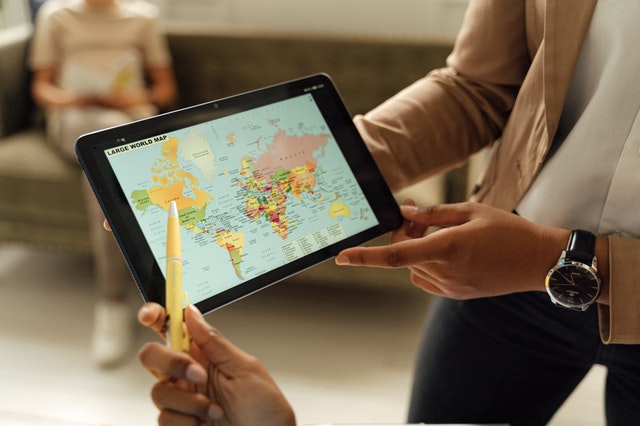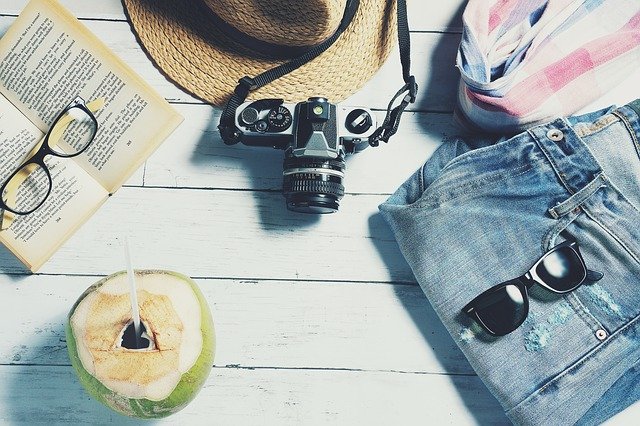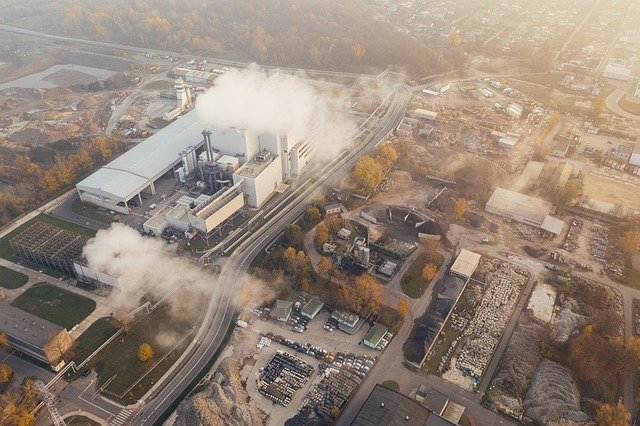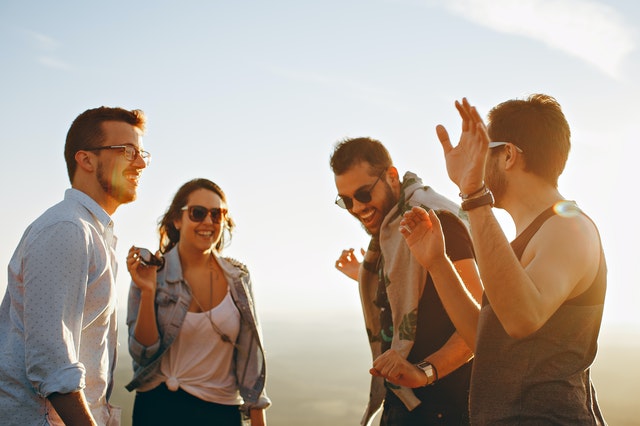Article Name
Simplicity and essentialism – the pursuit of less in a world of more
Published: October 12, 2021
Years ago, there was this young man who studied law in England. From a wealthy family and with good professional prospects, the future looked bright. But then he took the opportunity to travel the world. And that changed everything. He saw oppression. And he found a higher purpose: The liberation of the oppressed. With this single purpose, he wanted to have focus and he eliminated almost all other clutter from his life. He dressed in a homespun cloth. He spent years not reading any newspapers because he found it introduced non-essential confusion. He spent a day a week without speaking, just thinking. He simplified his diet. When he died, he owned fewer than ten items.
I am of course talking about Mohandas Gandhi. He became one of the ultimate examples of a person who eschewed consumerism and lived a life of utmost simplicity and essentialism, devoted to a cause. And causes do not come much bigger than the one he pursued. He helped the people of India gain independence, becoming the “Father of the Nation”. On his passing, General George Marshall, the US Secretary of State, said: “Mahatma Gandhi made humility and simple truth more powerful than empires”. And Albert Einstein added: “Generations to come will scarce believe that such a one ever in flesh and blood walked upon this earth”.

History provides us with some extreme examples of essentialism, the stripping of clutter. It has deep roots in many religions. Gautama Buddha left his life as a prince to seek the ascetic life. Moses also left the life of a prince, in Egypt, to go into the wilderness as a shepherd. John the Baptist lived in the desert wearing camel hair clothes and living off the land. Jesus was a carpenter and then ministered without material possessions. The Prophet Mohammad mended his own shoes and milked his own goats.
But we can see the philosophy of “less is better” in the lives of many other notable and diverse figures: Warren Buffet, Steve Jobs, Anton Rupert, Nelson Mandela, Mother Teresa and Jan Smuts. Indeed, we find people who have lived simple and unmaterial and happy lives among the most successful in every profession or human endeavour – doctors, investors, scientists, athletes, artists, lawyers, businessmen. Of course, we do not need to copy the extreme examples, but we can probably all do with a healthy dose of editing and purging the non-essential and unimportant clutter and noise from our lives, living more simple, more frugal lives, but living with more meaning and purpose and happiness.

The COVID-19 pandemic forced many of us to appreciate some simple things a bit more because we were unable to travel for work or pleasure; unable to enjoy entertainment away from home. Our choices were limited. As a result, we were forced to pay attention to and interact with life in a different way, using our senses perhaps a little more, enjoying bits of beauty and little treasures that are actually offered to us in abundance every day, but our busy lives have made us become unconscious of these gifts. Was it Socrates who had said many centuries ago: “Beware of the barrenness of a busy life”? Translated into 21st century-language, he said that we should take time to smell the roses. If we are too busy, we shall not see as much of the beauty that we are walking through.
What is some of this beauty in our daily and ordinary lives? There is the gift of more sleep due to not having to travel to the office. There is the smell of coffee in the morning. The appreciation of a beautiful sunrise or sunset and the feeling of warm sun rays on the skin. Fresh leaves from the vegetable garden for those who have started gardening during lockdown. Or the smell of fresh bread from the oven for those who have started this new hobby – I am told that it is many. After the intense lockdown, many just wanted to get out and started walking and exercising, something they have not done for years, and to their big surprise, they realised: “I actually like it! This is fun!” Most of us did not care what we wore from the waist down, what shoes, because nobody could see it.
The list is virtually endless. There are none of us who were not forced to find some nuggets in living a simpler life. The lockdown created a stillness and a change of gears that forced us to consciously observe and acknowledge some of these little gifts. I have heard from so many staff that they have decided to clean out cupboards, get rid of the non-essential, and committed to living less materialistic lives because they saw how little they actually can get by and still be happy. There is little need to replace the wardrobe with new stuff so frequently.

This prompted me to share with you a few thoughts on simplicity and essentialism. I shall focus on two elements: material things, and then on something even more precious: time.
For much of human history, it was a struggle to meet our basic needs, that bottom layer in Maslow’s pyramid. Between the time we homo sapiens left our African cradle some 70 000 years ago, until the dawn of the industrial era in the late eighteenth century, most humans lived in extreme poverty. We covered the planet, but we did not conquer it (yet).
And then it all changed. In that earth-shaking year of 1776, the year in which the American Declaration of Independence was signed, the year in which the Scottish economist Adam Smith published his Wealth of Nations, and the year James Cook embarked on his third and last voyage, James Watt demonstrated his new steam engine at a coal mine outside Birmingham. Muscle power was replaced by steam power, which profoundly changed our relationship with our planet. This, with many other innovations, kickstarted an extraordinary increase in human wealth per capita. By 1776, social development had clawed its way up by only about 50% since our ice-age hunter-gatherer grandparents prowled the earth in search of a meal. The transformation over the next quarter of a millennium beggared belief, a 50-fold increase in wealth. It turned the world inside out; it was nothing short of a miracle.
However, our prosperity was tightly coupled with taking resources from the earth. As we became more numerous and more prosperous, we took more: fossil fuels, land, water, minerals. We were ceaselessly busy and clever. We used extraordinary powerful tools to dominate and, sadly, we plundered, polluted and befouled the earth. We imposed ourselves on nature. And we also wiped out hundreds, thousands, of other species.

Can we stop our consumption growth? Will we not reach a point where most of our desires are met, where we do not feel the urge to consume ever more and more, year after year? After all, we can only eat so many meals, wear so many clothes, live in so many houses, drive so many cars, take so many holidays? Could our total consumption not taper off?
Not so, said Alfred Marshall, one of the greatest economists of all time. In his Principles of Economics, published in 1890, he said that reaching a saturation point in what we want is unfortunately not how we are configured. He wrote: “The uncivilised man indeed has not many more wants and desires than the brute animal, but every step in his progress upwards increases the variety of his needs. He desires not merely larger quantities of the things he has been accustomed to consuming, but better qualities of those things.” In other words: We want more! We do not get satisfied at any level of affluence or consumption. We might not even know what we desire next. But some clever innovator or entrepreneur is going to help us realise that.
Part of the solution out of the pickle is to keep our desires and new wants, our animal spirits, in check. Because happiness consists in not having ever more possessions, but in having fewer wants. Happier people are not preoccupied with what is lacking. They need less because they experience abundance through all their senses. They derive more pleasure from the simple delights that are in abundance around us.

Of all our possessions, the most valuable is not something that can be touched, but it is … our time. When it is lost, it is never to be found again. The number of hours in our days, and the number of days in our lives, is finite. Our respect for the privilege of living is visible in how we utilise our time. Time is precious, irreversible, unrecyclable. Hence, we need to live by design, not by default.
The first important point to make is that what we choose to do with our time is exactly that: a matter of choice. In fact, our whole life experience is a question of how we choose to fill our time. Options (things) can be taken away, but our ability to choose (free will) can never be taken away from us. Our ability to choose is what makes us human. We are not like branches in the wind that get pushed into directions depending on how the wind blows. We do not have to accept a hand that has been dealt for us. It sounds trivial, but my experience is that so few people grasp this fully. It is often easier to blame our situation on someone or something else (our parents, our education, the government, an employer, society, a spouse) than taking responsibility for our destiny and our routines and how we fill our time.
It boils down to priorities. If you do not prioritise things in your life, somebody else will. But it is not just the number of choices that has increased exponentially in our lives. It is also the outside influences on those choices. We live in a hyperconnected world, a world of information overload and hence much social pressure. Technology has lowered the barrier for others to influence what we should be focussing on. We need space to escape to discern the essential few from the trivial many. Unfortunately, in our busy worlds, we do not get that space by default, only by design. Pablo Picasso once said: “Without great solitude, no serious work is possible.” I am sure almost all great artists, authors, scientists, even businessmen, would agree.
A big trap that most of us, myself included, often tread into, is to take on too much, thinking that we can “have it all”. Probably all of us are infected with this myth. But we must accept that we cannot have it all or do it all. We can do anything, but we cannot do everything.
I want to encourage you to exercise essentialism. Rather say: “I choose to” than “I have to”. Rather think: “Only a few things really matter” than think: “It is all-important”. Rather ask: “What are the trade-offs?” than ask: “How can I fit it all in?” Rather say “no” to all but the essential than saying “yes” to people without thinking. Rather pause to discern what really matters than react to what is most pressing. You are allowed to draw your boundaries. If you have made a commitment with your family that Saturdays or certain evenings are to be spent with them, honour that commitment. Your choice and the boundaries that you draw might not be popular with your colleagues or your manager at the moment, but I can promise you they will ultimately respect those boundaries and they will respect you for drawing those boundaries. The business cannot draw those boundaries for you.
May one of the positives that we take from the COVID-19 lockdown experience be a commitment to lead a simpler and more fulfilling life. We were artificially forced to experiment with that. May we keep some of the lessons.
https://www.pps.co.za/simplicity-and-essentialism-pursuit-less-world-more

